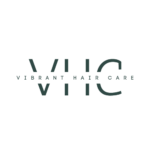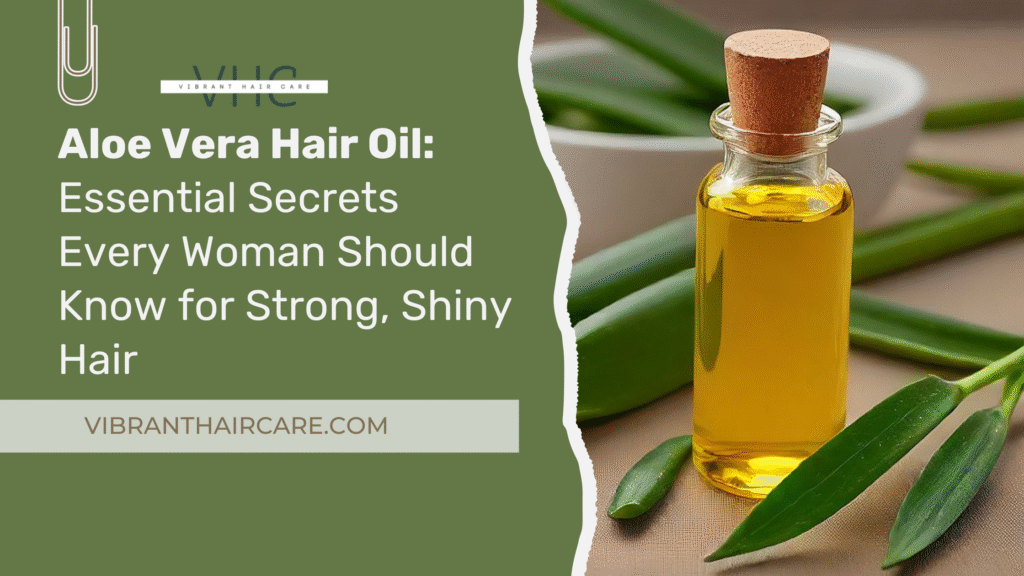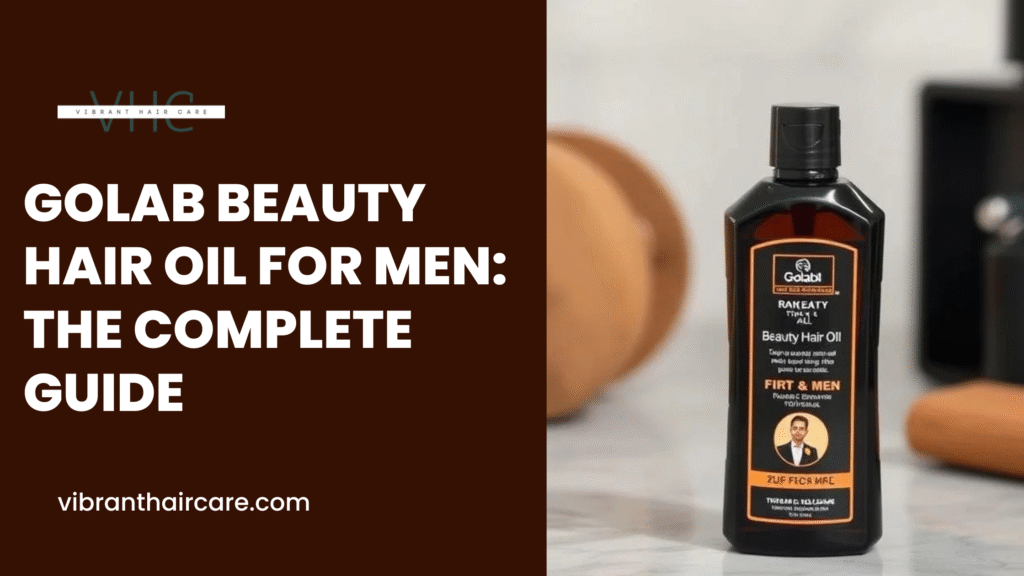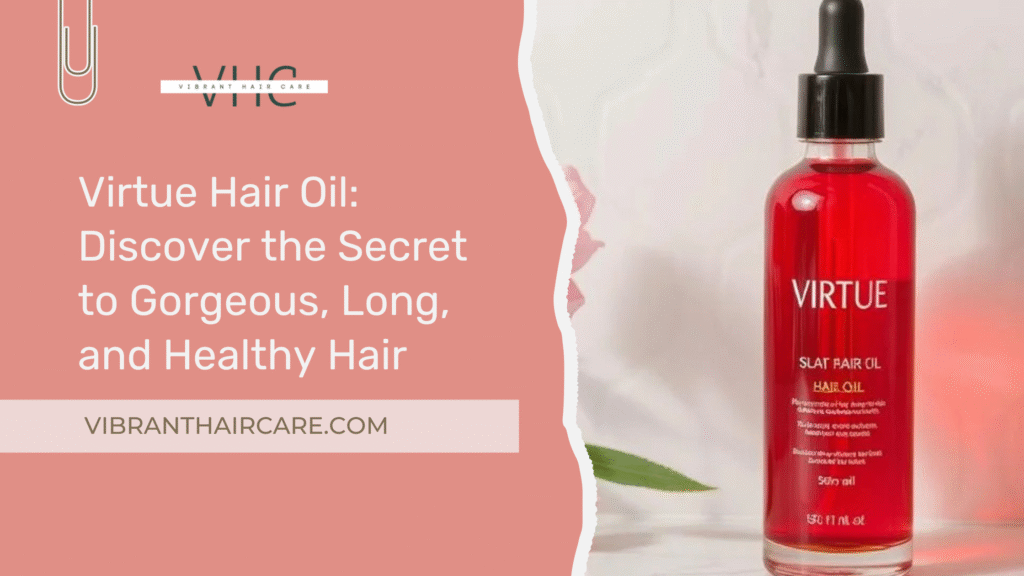Table of Contents
Introduction: Why Aloe Vera Hair Oil Is a Must-Have in Every Woman’s Hair Routine
There are not many ingredients in the natural beauty remedies that are as heralded as aloe vera. Categorized as hydrating, healing, and soothing potions, aloe vera has been used for a long duration of time to treat sunburns as well as drier skin. However, it really has magical properties when it comes to caring about hair, especially in the shape of Aloe Vera Hair Oil.

Aloe Vera’s Natural Benefits for Hair and Scalp
This is due to the fact that Aloe vera is highly stocked with essential nutrients, which safeguard the hair and make it thrive, including the whole crown of the head:
- Vitamins A, C, and E- These raise cell turnover, leaving healthier and shinier hair.
- These will help in the healing of broken hair and stop the itchiness of the scalp since the amino acids and enzymes will help it.
- Antibacterial and antifungal effects- Relieve flaky scalp, kill dandruff.
- Hydration boost- Aloe contains almost 98 percent water, so aloe is a very strong humidifier.
It is naturally lightweight in texture and non-greasy in feel, thus it suits a broad profile of hair styles, right down to the fine and straight up to thick and curvy.
Why Combining Aloe Vera with Hair Oil Is a Game-Changer
In the case of aloe vera, it can provide numerous good effects on the hair and the scalp, and to get more out of it, it would only help add some more if the natural hair oils (e.g. coconut oil, jojoba oil, castor oil) were added to it, not to mention also ensuring that this substance reaches a bit deeper within the head and the hair itself. This combination:
- Forms a very nutritious treatment, nourishing root to tip
- Improves gloss, smoothness, and robustness without blockage in hair roots
- Moisturizes and quasies frizziness, breakage, and split ends
- Helps to grow hair because it stimulates and detoxifies the scalp
It is not a superficial cure but a way to make a difference to your hair, internal to the outside.
What You’ll Learn in This Complete Guide
In this guide, you’ll discover:
- What is Aloe Vera hair Oil and how is it bodied?
- The fundamental advantages supported by the natural science
- How to use it the best, according to the type of hair you have and what you want to achieve
- One of the easiest DIY recipes you may use at home
- Mistakes to watch out for, actual user findings, and going against other oils
There are times when you feel that you need longer and healthier hair that is more natural to shine, and times when you can think mainly of addressing scalp problems, at least. In such cases, the relief to you may be Aloe Vera Hair Oil, and this could be your missing link in taking care of your locks. This guide will demonstrate the way how to milk starting now.
What Is Aloe Vera Hair Oil and How Is It Made?
Aloe Vera Hair Oil is a very nutritious oil that is prepared by mixing aloe vera (an herb with moisturizing and healing qualities) into a natural carrier oil. The outcome is a low-weight, multi-purpose treatment that feeds the scalp and the strands.
Natural Origins of Aloe Vera and Its Historical Use in Beauty
Aloe Vera was utilized earlier than 6000 years ago in ancient Egypt, Greece, and India due to its health and beauty properties. With a reputation for the plant of immortality, it was a staple in royal beauty regimes because it:
- Moisturize the skin and the scalp
- Treat injuries and burns
- It stimulates soft, radiant skin as well as hair
Its extensive application in various cultures testifies to the success of its applicability as a natural beauty treatment.
How Aloe Vera Is Infused Into Hair Oil (DIY and Commercial Methods)
In commerce, aloe vera is cold-pressed or heat-infused in carrier oils (coconut, jojoba, or castor oil). The extraction to fetch the bioactive elements of the aloe vera leaves and to combine them with the oil is done through these steps.
DIY Method at home:
- Take out fresh aloe vera gel from the leaf.
- Carrier oil should be added to it (1 part aloe to 2 parts oil).
- Stir the mixture over low heat for 10 and 15 minutes.
- Strain and preserve in a dark-glass bottle.
This makes a powerful oil remedy, which is immune to preservatives and chemicals.
The Difference Between Aloe Vera Gel, Juice, and Aloe-Infused Oil
- Aloe Vera Gel: A water-based gel and thick, good to apply on the scalp, and provides limited moisturization.
- Aloe Vera Juice: These are weaker and thinner; they are usually incorporated in homemade hair sprays or homemade rinse solutions.
- Aloe Vera Oil: Combined with carrier oils to nearly and enhancing its absorption and shelf-life, it is a perfect one employed in massages and conditioning.
Check Out: 7 Most Important Deep Conditioning Tips.
The Core Benefits of Aloe Vera Hair Oil for Healthy Hair
The synergy of improving hair and scalp via medicinal attributes of aloe vera and nourishing the hair with natural oils is no less than advantageous:
- Strengthens Hair Follicles and Reduces Breakage
- Aloe vera has protein-digesting enzymes, which heal diseased skin cells in the head and also strengthen the roots. When it is combined with oils that are highly fatty in acids, it strengthens weak hair and stops the breakage of the hair.
- Deeply Hydrates Dry and Damaged Hair
- Aloe Vera is made up of 98 percent water and, therefore, is a good moisturizer. As a result of the injection of the oil, the hydration is locked in, and the dry hair looks hydrated, softer, and brittle hair is no longer dry but manageable and less likely to be frizzy.
- Fights Dandruff and Soothes Itchy Scalp
- It’s flaky, dandruff-causing issues, such as irritation, flaking, and normalization of sebum production on the scalp, are the most common causes of dandruff, and the attribute of aloe vera is its antifungal and anti-inflammatory properties.
- Promotes Natural Shine and Softness
- Additionally, when used continuously, the oil of aloe vera straightens the hair cuticle to get a less coarse texture and thus better ability to absorb light, and hence the hair becomes shinier and silkier.
- Supports Hair Growth by Improving Scalp Circulation
- The application of aloe vera hair oil on the head will stimulate the blood flow that is full of nutrients to the hair follicles to aid natural and healthy growth of hair growth.
How to Use Aloe Vera Hair Oil for Maximum Results

Application of Aloe Vera Hair Oil is an important thing to know, how and when it should be applied in order to derive maximum results.
Step-by-Step Guide to Applying the Oil Properly
- Take some tablespoons of the oil in the palms and warm them.
- With fingertips, apply to the scalp and massage it gently for 5-10 minutes.
- Apply the rest of the oil all the way to the hair, and more importantly, to the tips.
- Keep sitting, at least, for half an hour (or longer to treat deeper).
- Cleanse using a delicate non-sulfate Shampoo.
Using It as a Pre-Shampoo Treatment or Scalp Massage
Apply the oil 30 to 60 minutes prior to your wash day. This helps:
- Prevent your hair loss by moisturizing in shampooing
- Free accumulated residues and substances on the scalp
- Get your strands ready to be conditioned
Overnight Deep Conditioning Mask Method
For intense repair:
- Massage onto the scalp and ends liberally
- Put a silk scarf or shower cap on your hair
- Shampoo it in the morning to condition hair
Frequency of Use Based on Hair Type
- Oily hair: 1–2 times a week
- Dry or damaged hair: 2–3 times a week
- Curly/coily hair: 3+ times a week or as needed for moisture
- Frizzy hair: Light daily use on ends or flyaways
DIY Aloe Vera Hair Oil Recipe for Natural Hair Care Enthusiasts
By creating your own aloe vera hair oil, you can tailor it to your requirements and can bypass preservatives or man-made ingredients.
Simple At-Home Recipe with Aloe Vera Gel and Carrier Oils
Ingredients:
- 2 tablespoons of fresh aloe vera gel (or pure store-bought)
- 4 tablespoons coconut oil (or any carrier oil of your choice)
- Optional: A few drops of essential oil (e.g., rosemary, tea tree, or lavender)
Instructions:
- Mix a gel of aloe vera until they are smooth.
- Warm the carrier oil on low fire and stir in the aloe gel.
- Simmer, 10-15 mins, until the water content is evaporated.
- Strain and then pour into a clean bottle.
- Keep in a dark, cool place.
Best Carrier Oils to Use
- Coconut Oil: very moisturising and anti-microbial
- Castor Oil: It is great in stimulating hair growth and density
- Jojoba Oil: Jojoba oil is closest to the natural sebum found on the scalp, lightweight, non-greasy
- Argan Oil: Argan Oil is full of vitamin E, perfect shine, and soft
Tips for Storing and Preserving Homemade Aloe Vera Hair Oil
- Put the oil in airtight and dark containers made of glass
- Store it in the dry, cool place- refrigeration helps to prolong shelf-life
- Consume in 2-4 weeks when prepared using the fresh aloe; inches when gel purchased at the store is used
Common Mistakes to Avoid When Using Aloe Vera Hair Oil
The most effective kind of hair oil cannot work its magic when being used improperly. Following are some of the commonest errors committed by women in using Aloe Vera Hair Oil and the way to avoid them:
Applying Too Much and Making Hair Greasy
Aloe Vera Hair Oil is lighter, so you cannot overuse it because its excess will cause its compactness and consequent flattening of the hair. Use a little at a time (2-3 drops to 1 tsp), only increase when necessary.
- Tip: It should always be applied more to the ends rather than the roots unless one is using it as a treatment before washing.
Not Massaging Into the Scalp Effectively
Aloe vera oil is most effective when rubbed into the scalp since this enhances the flow of blood, activation of the follicles, and the absorption of nutrients. Not taking this step is equal to a loss of growth-boosting capacities.
- Tip: Massage with fingertips (not nails) in small circular movements for a period of 5 minutes and 10 minutes.
Using the Wrong Type of Oil for Your Hair Type
The aloe vera can be diluted with all types of carrier oil, but careful selection should be made as the effect will be either dry skin or greasy:
- Fine/oily hair: Give argan/jojoba oil a go
- Thick/ coarse hair: Use castor or coconut oil
- Tip: Try out various base oils until you discover what you feel light and productive on your skin.
Ignoring Product Quality or Shelf Life
Aloe vera is a fresh and perishable ingredient. Oils, which are found in the stores and whose preservation is worse or the mixture is low, can have a short shelf life or give rise to irritation.
- Tip: Select cold-pressed and preservative-free types of oil and artificial scents or silicones. In case it is done at home, it should be used within the span of 2 to 4 weeks unless it is stored.
Real Results: What Women Are Saying About Aloe Vera Hair Oil

Aloe Vera Hair Oil has been used by thousands of women who wanted that extra boost to have stronger and healthier hair, and the evidence is in the testimony of the women who tried it.
User Testimonials and Success Stories
- My hair fall has decreased significantly after applying aloe vera oil once a month, and my scalp is clean and fresh.
- It is the only oil that does not make my hair greasy. My curls are less coarse and well-defined.”
- My postpartum hair loss has slowed, and literally I have baby hairs growing everywhere now!
Common Improvements Reported
- Hair breakage and split ends are diminished
- Shiny and velvet-like touch, Visible improvement in the texture and shine
- Fewer frizzy hairs and split ends
- The check in the form of greater scalp comfort and the reduction of flakes
- Increased growth at the hairline and the crown
How Long Does It Typically Take to See Visible Results
- Short term: After the initial use, shinier and softer
- 2-4 weeks Less breakage, healthier scalp, and smoother hair
- 6-8weeks: Visible gain, level, and power with regular training
Aloe Vera Hair Oil vs Other Popular Hair Oils: Which One Wins?
Wondering how aloe vera oil stacks up against other favorites? Let’s break it down:
Aloe Vera vs Coconut Oil: What’s Better for Scalp Health?
| Feature | Aloe Vera Oil | Coconut Oil |
| Moisture | Deeply hydrating, lightweight | Heavy, deeply moisturizing |
| Scalp Soothing | Anti-inflammatory and cooling | May clog pores for some people |
| Hair Texture | Works for all types, including fine | Better for thick, coarse hair |
| Best For | Dandruff, itchy scalp, fine hair | Dry, damaged, or frizzy hair |
Winner: Aloe vera oil is especially good for scalp health and versatile, especially on sensitive skin.
Aloe Vera vs Castor Oil: Growth Benefits Compared
| Feature | Aloe Vera Oil | Castor Oil |
| Growth Support | Stimulates follicles, improves scalp | High in ricinoleic acid, boosts circulation |
| Texture | Light to medium | Very thick and sticky |
| Use | Easy to apply and rinse | Often needs to be mixed |
Winner: Aloe vera oil is simpler to apply on a daily basis and serves the purpose of challenging people who do not want to gain too much weight.
When to Blend Oils vs Use Aloe Vera Oil Alone
- Blend in more strength (castor) or moisture (coconut/argan) into your hair where it is desired
- Apply singly in case of a sensitive or oily scalp or one with a propensity for accumulation
Conclusion: The Long-Term Benefits of Making Aloe Vera Hair Oil Part of Your Routine
Aloe Vera Hair Oil is not just a beauty product; it has been a time-honored remedy because it works and not only helps to beautify your hair, but it benefits it at the very core of its roots to the end of each and every hair strand. It is a hydrating, healing, as well as growth-enhancing agent and thus, is an ideal product applied on women with any type of hair and texture.
Recap of Its Natural, Science-Backed Benefits
- Improves and restores fine or brittle hair
- Calms down dry, itchy, or flaky scalps
- Enhances good shine, softness, and ease
- Helps in natural hair growth and minimization of hair loss
- Mild and non-damaging to sensitive or chemically treated hair
Who Should Use It and Why
- Any person who has dry, frizzy, or thinning hair
- Women whose hair has fallen out, or who are shedding after birth, or who have discomfort on the scalp
- The keen users of natural funds who prefer plant-based products, free of the chemical approach
For more info: Click Here.
Encouragement to Start Using It Consistently for Lasting Results
You can not get perfect hair in a day, but you will be happy to know that constant application of Aloe Vera Hair Oil will make a definite change. Being consumed either separately or in a mixture of other natural oils, it becomes an exclusive component of every long-term healthy hair care strategy.
Begin with little, do not quit, and nature will do the rest.
FAQs About Aloe Vera Hair Oil
Does Aloe Vera Hair Oil suit hair of any texture?
Yes. The Aloe Vera Hair Oil will provide the right care to your hair, whether fine hair or thick hair, curly hair or coily hair, straight hair or dry hair, or oily hair. The Aloe Vera Hair Oil will be the best oil to use because it is lightweight and gentle. It is simple to refine it by ways of mixing it up with carrier oils that best suit your requirement.
Does Aloe Vera Hair Oil do wonders to regrow hair?
Yes. Aloe Vera Hair Oil is a product that can accelerate hair growth through the boosted circulation of blood in the body, minimize inflammation on the scalp, and strengthen the hair follicles. After frequent usage, most users claim to have good hair growth at a lesser rate of hair fall, along with stronger and healthier hair.
Can I use Aloe Vera Hair Oil during the time of coloring or chemically treating my hair?
Yes. There are no hazards using Aloe Vera Hair Oil on the color-treated / relaxed/bleached / or chemically straightened hair. The non-stripping formula is natural, and it assists in restoring moisture, repairing the strand, and protecting the strand against breakage it prevents.





Best in market